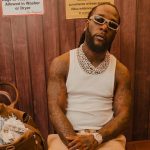At the time of writing this, I did a little research and found out that Fisayo Soyombo was detained by the Nigerian Army this week. Because I didn’t read the news, I didn’t know. I didn’t know the man who, two weeks ago, I had selected as my Culture Icon for 2024, had been detained by the Nigerian Army for the crime of doing journalism.
It all stems from the two-year investigation he published in the first half of this year, exposing monumental corruption at the Nigerian Customs Service – putting the spotlight through a documentary and online media reportage on a syndicate conniving with customs officers to smuggle items such as foreign parboiled rice, poultry products and guns into the country through Ogun State’s border communities. It shook the entire country because of the level of detail and the amount of corroboration.
This is not even the biggest story Soyombo has broken in a career of big stories that have spanned The Cable, Sahara Reporters, freelance journalism and his platform, the Foundation for Investigative Journalism.
This is a man who has gone undercover in Nigeria’s largest psychiatric hospital to expose corruption that endangers the most vulnerable, driven a “stolen vehicle” from Abuja to Lagos, passing through almost 90 police checkpoints to provide copious evidence of bribery, exposed abandonment of soldiers injured in battle with Boko Haram, revealed corruption in government-run mortuaries and who has gone undercover in the most dangerous place to be in Nigeria – maximum security prison – to expose corruption in that institution.
People often say to me because of the kind of documentaries we do – tackling police brutality, high-level corruption or organ trafficking – that I am brave and take risks and they fear for my safety. I smile, because they probably have not heard of Soyombo, or do not understand the scale and significance of his work. Whatever risks I take, he takes in multiples. Whatever dangers I face are dwarfed in the face of his, and they come from multiple directions – in this year’s trending case for instance, the Nigerian Army, the Nigerian Customs, smugglers, networked and influential businessmen and an assortment of characters whose ongoing livelihood he threatens.
What makes his journalism so powerful in addition to his rare bravery is the extent of his research, the depth of his discoveries and the transparency of his passion. He is not distracted by petty concerns; he is careful in navigating bias, and he is meticulous in focusing on the problems he is trying to solve. This is not a man seeking to score cheap points, This is a man determined to do his bit to change his country, even if just a little.
And he has achieved more than a little – enabling the release of the wrongly imprisoned, ensuring the treatment of neglected soldiers and directly triggering the arrest of corrupt police officers. He is easily the most important investigative journalist alive in Nigeria today.
And Nigeria, as it stands, doesn’t deserve Soyombo. It has coopted, corrupted and silenced enough voices to make it clear there is very little reward in fighting for it, even the people you fight for might end up attacking you.
But Soyombo doesn’t care. There is something deep inside him that drives him to fight and slay giants, even at the cost of his life, liberty and livelihood. He won’t back down.
When the central figure in the smuggling expose took him to court, slamming him with a N500 million lawsuit, he showed up and gave a robust defence of himself, confident in the work he has done and the spirit of that work. And when confronted by his resolve, the figure sought to back out and have the case dismissed, Soyombo said no. He must finish what he started. Perhaps in proving this case, some justice would be served and some truth revealed. When last did you meet a person with such chutzpah?
As I write, Soyombo has been released by the army, and guess what he is doing this minute? Tweeting about more corruption he has discovered at the Nigerian Customs Service. Nigeria doesn’t yet deserve a hero like him. We have eaten too many of our heroes alive. And because of that, we must count ourselves lucky, blessed, exceedingly fortunate, that amid darkness, we have light like him, shining bright, blazing forth, and giving us true hope.
Soyombo provides hope that Nigeria and Nigerians desperately need today. And for that, he is the Culture Icon for 2024.
Jideonwo is a storyteller, using the research and evidence on human flourishing to inspire new narratives about politics, markets, faith, identity and society in Africa.
He is a co-founder of RED, which he ran for 13 years before stepping down in December 2017. One of its companies, StateCraft Inc. handled communication for the Muhammadu Buhari campaign in 2015 and has worked in elections in Ghana, Kenya, Liberia, and Sierra Leone.




GIPHY App Key not set. Please check settings